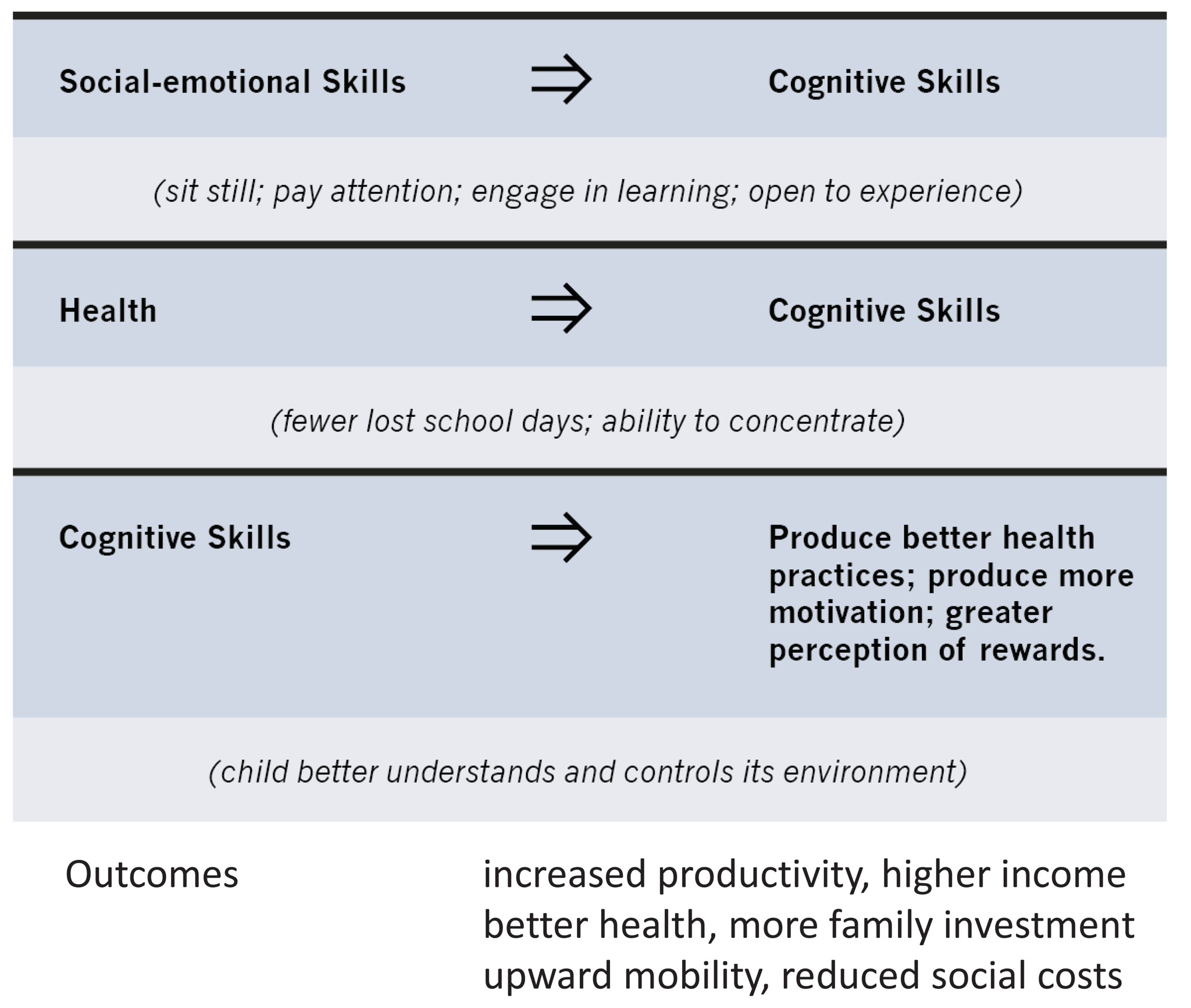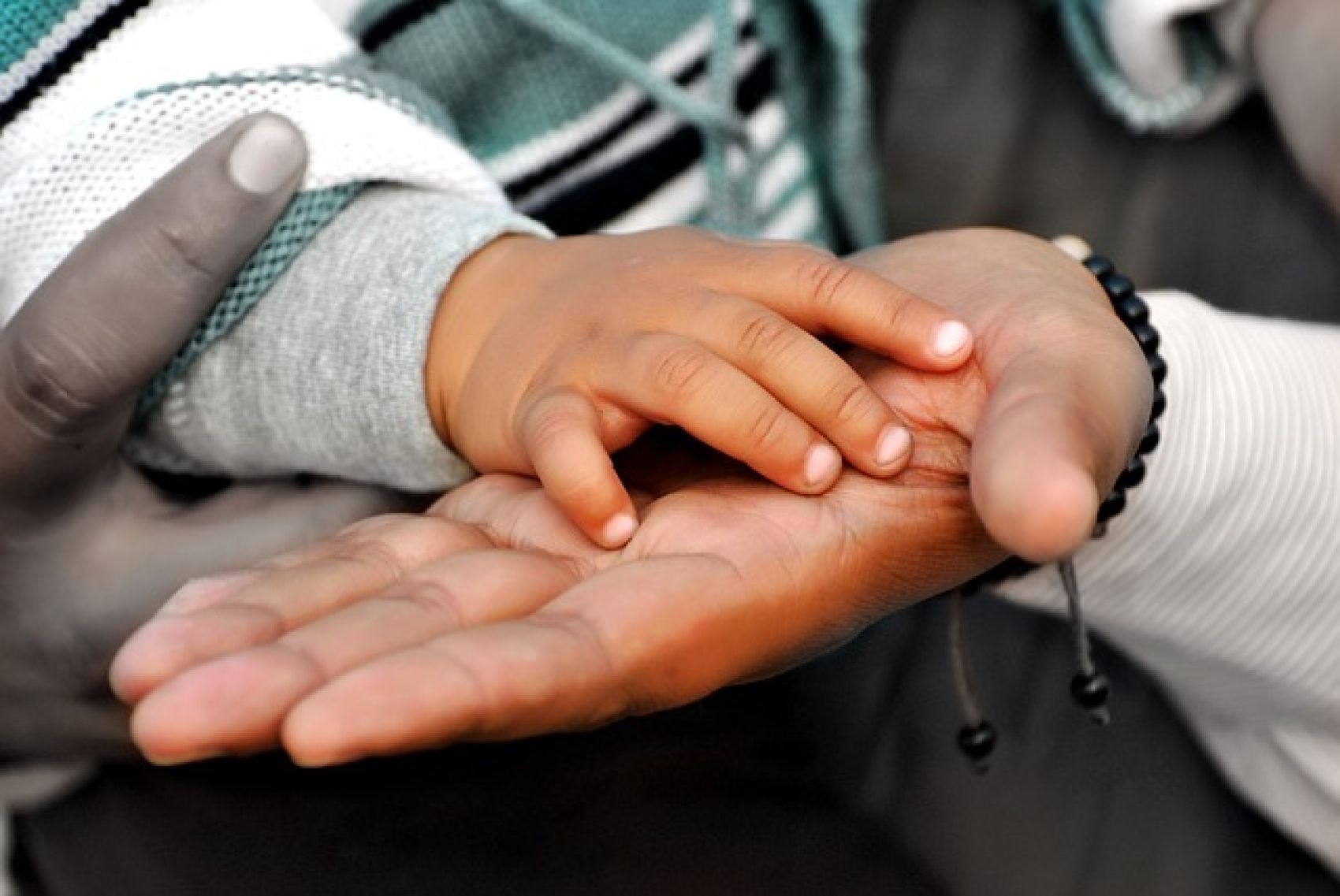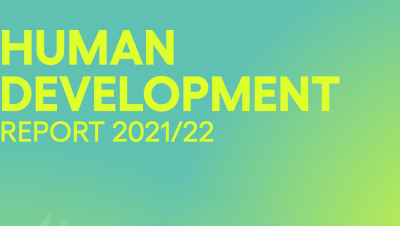Children who are born poor, live in unsanitary conditions, receive little mental stimulation or nurturing, and have poor nutrition in their first years are far more likely than their richer peers to grow up stunted in body and mind. These children tend to do poorly in class, repeat grades, and drop out at high rates. In the workplace they are able to perform only unskilled jobs and earn the lowest wages. When they have children, a cycle of inherited poverty begins—and is repeated across generations.
The first few years of a child's life are particularly important. Evidence of this importance continues to unfold with theoretical advances supported by empirical data from many disciplines (e.g., neuroscience, social and behavioral science, economics). Nobel laureate Jim Heckman makes a compelling case for the importance of children’s early years as being critical to the formation of skills and capabilities and being important causal determinants of life-cycle outcomes, arguing that the accumulation of human capital is a dynamic life-cycle process and that skill begets skills. But current policies of education and job training are misconceived, tending to focus on cognitive skills, measured by achievement on IQ tests, and neglect the critical importance of social skills, self-discipline, motivation, and other “soft skills” known to determine success in life.
Perhaps three ideas are key to understanding early childhood development.
- The powerful role of family life and children’s early years in shaping adult capabilities. Family factors in the early years play a crucial role in creating differences in cognitive and non-cognitive abilities. Heckman concludes that capabilities are not fixed at birth or solely genetically determined, but are causally affected by parents’ investment in their children and that a “proper measurement of disadvantage is the quality of parenting, attachment, consistency, and supervision, and not income per se.”
- Multiple capabilities shape the ability of individuals to function in society. Having a core set of capabilities (both cognitive and non-cognitive) promotes success in many aspects of life. Interventions in early childhood have the greatest impact in promoting essential, non-cognitive skills.
- The formation of capabilities is synergistic, as one capability enhances another (i.e., capabilities beget capabilities). Cognitive and non-cognitive skills interact dynamically to shape the evolution of subsequent capabilities. The development of children’s cognitive skills and non-cognitive skills (e.g., conscientiousness, self-regulation, motivation, cooperativeness, persistencetime preference, far-sightedness) reflects the investments in human capital made by the parents and children.
Studies of skill formation show that returns on investments in schooling are higher for persons with higher abilities when these abilities are formed earlier. The figure below depicts this synergy of competencies, which also includes health.

Early human development is, therefore, a powerful equalizer, as investments in early childhood yield significant long-term benefits that narrow the gap between high- and low-income families. Investing in disadvantaged young children “ that promotes fairness and social justice and at the same time promotes productivity in the economy and in society at large.”
And yet social policies too often are remedial and fragmented, focusing on only one problem at a time. Heckman remarks, “Too often, government officials design programs for children as if they lived their lives in silos, as if each stage of a child’s life were independent of the other, unconnected to what came before or what lies ahead. It’s time for policymakers now to look beyond silos, to begin recognizing that consistent, cost-effective investment in children and youths can pay for itself.” Clearly, it is more equitable and cost effective to invest in ECD programs, which can enhance children’s potential, than it is to pay far more later to try to remediate what could have been prevented. And so we must start with a more comprehensive approach to the early years in life—that is, “equity from the start”.
Efforts in early child development must converge on the four tasks of the unfinished agenda—redirection of social policies to focus on young children, incorporation of ECD into public health models, measurement of outcomes and linkage of them to programs and policies, and communication of the importance of healthy brain development at ages 0–6.
Children cannot defer their growing up until there are strong institutions and all the right policies are in place. We owe them, and ourselves, better than that.
MD, DrPH is senior adviser to the Harvard University Center on the Developing Child; co-leader of the Early Childhood Initiative of the Human Capital and Economic Opportunity Global Working Group, Institute for New Economic Thinking, University of Chicago; Senior Fellow of the China Development Research Foundation; and Adjunct Professor of Pediatrics, University of Hawaii Medical Center.
This blog post was drawn from the Human Development Report Office 2014 Occasional Paper entitled: Addressing and Mitigating Vulnerability Across the Life Cyle
Sources:
Conti and Heckman 2010. “Understanding the Early Origins of the Education–Health Gradient.” Perspectives on Psychological Science 5 (September): 585–605. DOI: 10.1177/1745691610383502.
Heckman 1999. “Policies to Foster Human Capital.” NBER Working Paper 7,288. New Brunswick, New Jersey: National Bureau of Economic Research. www.nber.org/papers/w7288.
Heckman 2007. “Beyond Pre-K: Rethinking the Conventional Wisdom on Education Intervention.” Education Week 26 (21 March) (28): 40.
Heckman 2008a. “Capability Formation, Early Intervention and Long Term Health.” Outcome Research Workshop. University of Chicago, Chicago, 1 October.
Heckman 2013. “The Economics of Inequality and Human Development.” Keynote presentation at the First National Congress meeting on Building a Legal Framework for Public Policies for Early Childhood, Brasilia, 16 April.
WHO 2008. Commission on Social Determinants of Health. 2008. Closing the Gap in a Generation: Health Equity through Action on the Social Determinants of Health. Geneva.
The HDialogue blog is a platform for debate and discussion. Posts reflect the views of respective authors in their individual capacities and not the views of UNDP/HDRO.


